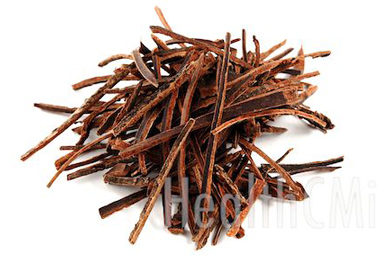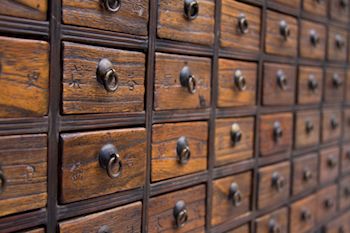Patient Outreach & Perception

A fear of needles is an obstacle to patients seeking a visit to an acupuncture clinic. Needle phobia affects approximately 10% of the population. People who suffer from this condition often avoid medical care. Beyond this issue, there are potential patients that fixate on the needle concept rather than on the healing aspect of treatment. There are many ways to reach out to these people with traditional medicine.
Acupuncturists often attempt to apply alternative stimulation with lasers, electrical devices, moxa, cupping, gua-sha and more. Promoting these alternatives to needles may help with community outreach. However, perhaps the most powerful community outreach alternative is herbal medicine. This brings the focus away from the perceived invasive nature of physical medicine into the realm of internal medicine. Educate patients that Traditional Chinese Medicine and other forms of Traditional Oriental Medicine encompass herbal medicine, acupuncture, Qi Gong, Tai Qi, Tui-Na massage, dietetics and more. This helps patients to spread the word about acupuncturist services. They may be able to refer friends and family who would otherwise shun a visit to a licensed acupuncturist.
Be genuine and share authentic experiences of recent successes with herbal medicine with your patients. Let them know that some conditions may be treated using herbal medicine as a standalone treatment in some cases. They may discover that some of your clinical stories strike a chord within them and remind them of someone they love who needs care. Now, they are empowered to communicate within friend and family about visiting your clinic without having the focus turned to needles. At HealthCMi, we offer a great many acupuncture CEU courses that cover herbal medicines. Thinks about some of the conditions covered in the acupuncture CEU courses and share the positive clinical benefits with your patients.
Insurance Billing
Acupuncturists can bill for an exam and the herbal medicine. Granted, the acupuncture billing codes 97810, 97811, 97813 and 97814 are out. These codes are strictly for manual acupuncture first 15 minutes, additional 15 minutes of manual acupuncture, electroacupuncture first 15 minutes and an additional 15 minutes of electroacupuncture respectively. However, some insurance carriers may pay for evaluation and management with what is called an EM code. These codes are based on the time spent and severity of the condition and include 99204 and 99214. The first code is for new patient evaluation and management that encompasses aspects of diagnosis and assessment including taking chart notes. The second code is for subsequent visits. Naturally, an acupuncturist will more likely have success with standard acupuncture codes but the EM codes may help to obtain reimbursement when herbal medicines are the treatment modality.
Promote your acupuncture practice with all of the treatment modalities within your scope of practice and reach a broader base within the community while expanding the public’s expectations of what an acupuncturist can do. No doubt that combining acupuncture with herbal medicine is advantageous in most circumstances but herbal medicine is often up for the task as a standalone procedure. Simply charge for the diagnostic portion of the office visit and for the herbs.
Great examples are the treatment of menopause and asthma. Here are two conditions that respond rapidly to herbal medicine.  Certainly acupuncture enhances clinical responses with a synergistic effect. Nonetheless, these conditions can be resolved with herbal medicine alone. Perhaps Suan Zao Ren Tang or Tian Wan Bu Xin Dan can help to eliminate night sweats, restore Qi, benefit sleep and provide a calming experience for those with Yin deficient heat type menopause. Maybe Er Xian Tang is a better choice for those with both cold and heat signs when there is both Yin and Yang deficiency. The same is true with asthma. There are many formulas including Ping Chuan Wan, Ding Chuan Wan, Su Zi Jiang Qi Tang and more that can be of tremendous benefit.
Certainly acupuncture enhances clinical responses with a synergistic effect. Nonetheless, these conditions can be resolved with herbal medicine alone. Perhaps Suan Zao Ren Tang or Tian Wan Bu Xin Dan can help to eliminate night sweats, restore Qi, benefit sleep and provide a calming experience for those with Yin deficient heat type menopause. Maybe Er Xian Tang is a better choice for those with both cold and heat signs when there is both Yin and Yang deficiency. The same is true with asthma. There are many formulas including Ping Chuan Wan, Ding Chuan Wan, Su Zi Jiang Qi Tang and more that can be of tremendous benefit.
Herbal medicine, like scalp & auricular acupuncture, is conducive to a group treatment style. Patients can be seated in a single room and diagnostics can be assessed in a first-come-first-serve basis open seating arrangement. Perhaps using auricular seeds or tacks combined with herbal medicine is the right combination for this type of community style treatment. Patients need to decouple needles from the role of an acupuncturist. It is vitally important for patients to appreciate and share the true variety of treatment modalities offered by a licensed acupuncturist.


